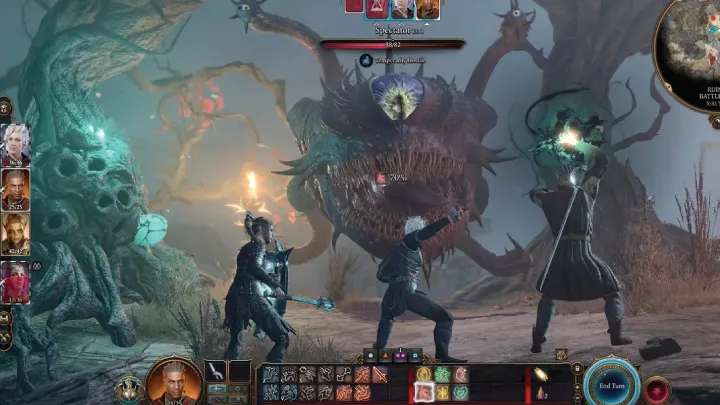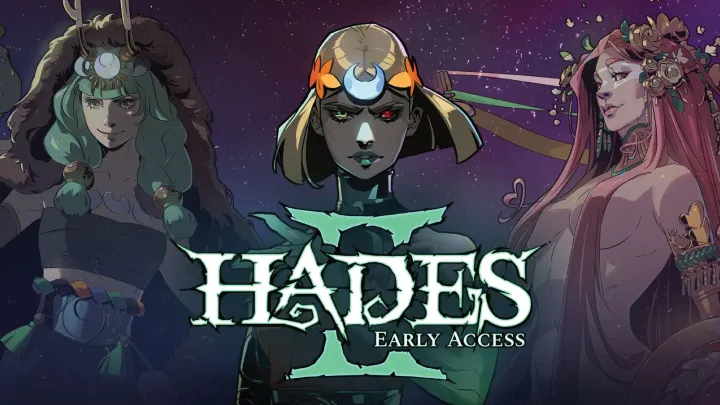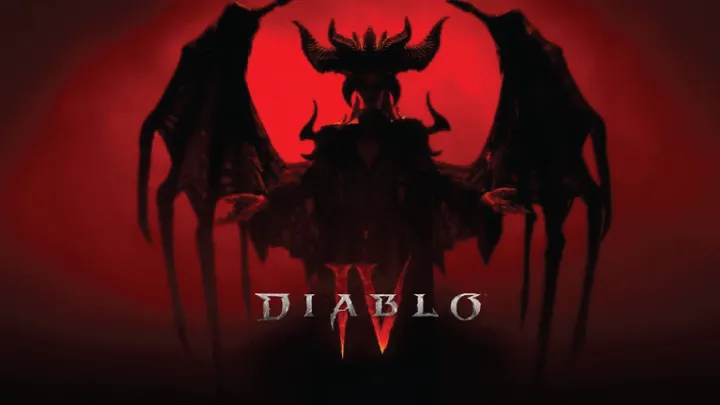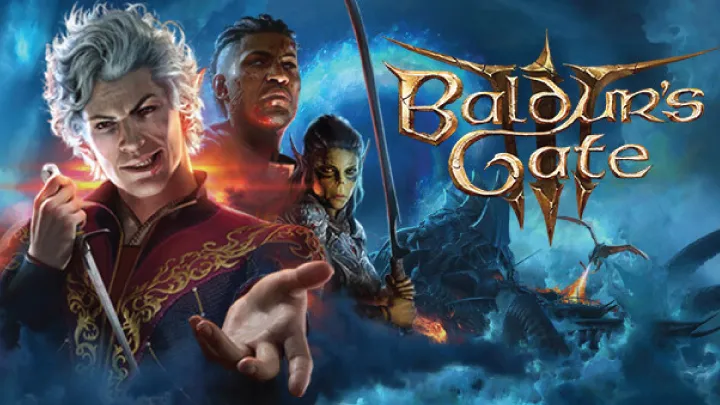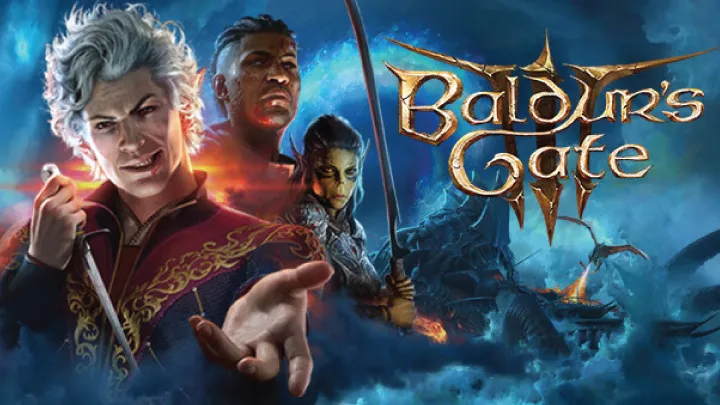 In the landscape of modern role-playing games, few titles have captured the imagination of players quite like Baldur's Gate 3. Developed by Larian Studios, this game builds upon the rich lore of the Dungeons & Dragons universe while introducing players to a world brimming with choices and consequences. Central to the experience is the game's exploration of moral complexity, where every decision can have far-reaching impacts on the narrative, character relationships, and the game world itself. This article delves deeply into how Baldur's Gate 3 presents choice as a core gameplay mechanic, examining its implications for storytelling, character development, and player engagement.
In the landscape of modern role-playing games, few titles have captured the imagination of players quite like Baldur's Gate 3. Developed by Larian Studios, this game builds upon the rich lore of the Dungeons & Dragons universe while introducing players to a world brimming with choices and consequences. Central to the experience is the game's exploration of moral complexity, where every decision can have far-reaching impacts on the narrative, character relationships, and the game world itself. This article delves deeply into how Baldur's Gate 3 presents choice as a core gameplay mechanic, examining its implications for storytelling, character development, and player engagement.
The Foundation of Choices: A Dungeons & Dragons Legacy
Baldur's Gate 3 is set in the Dungeons & Dragons multiverse, specifically the Forgotten Realms. This foundation not only dictates the game's mechanics but also the philosophical framework within which players must operate. The game’s commitment to D&D’s ruleset underpins its approach to choice, ensuring that player decisions are not just narrative embellishments but integral components of gameplay.
The Role of Dice in Decision-Making
In traditional Dungeons & Dragons gameplay, dice rolls determine the success or failure of actions, adding a layer of unpredictability. Baldur's Gate 3 retains this element, allowing players to roll dice during key decision points. This mechanic reinforces the unpredictability of choices, as players can succeed or fail in their attempts to persuade, deceive, or intimidate characters.
The Emotional Weight of Dice Rolls
While the dice mechanic adds randomness, it also heightens the emotional stakes of decisions. Players may find themselves holding their breath as they roll, knowing that a single outcome could alter the course of their adventure. This tension enhances the feeling of agency, as players are not merely progressing through a story but actively shaping it with every roll.
The Complexity of Moral Choices
One of the most compelling aspects of Baldur's Gate 3 is its intricate moral framework. Unlike many games that present clear-cut good and evil choices, this title immerses players in a world where morality is often ambiguous.
The Gray Areas of Right and Wrong
In Baldur's Gate 3, players frequently face dilemmas that challenge their ethical beliefs. For instance, one might encounter a scenario where saving a character could endanger others or where betraying a friend might be the only way to achieve a greater good. These situations compel players to weigh their options carefully, making them reflect on their values and beliefs.
The Impact of Companions’ Morality
Companion characters each have their own moral compasses and backgrounds, which influence how they react to player decisions. For example, if a player chooses a violent solution to a problem, a companion who values peace may become disillusioned or even leave the party. This dynamic adds depth to the narrative, as players must consider not just their goals, but also the ramifications of their actions on their allies.
Character Development Through Choices
Character development in Baldur's Gate 3 is intricately tied to the choices players make. As characters navigate the world, their growth is reflected in their responses to the player’s actions, creating a rich tapestry of relationships and narratives.
Dynamic Relationships
The bond between characters evolves based on the player’s choices, leading to dynamic interactions. For instance, a compassionate approach may strengthen a relationship with a character who values empathy, while ruthless decisions may alienate those who prioritize loyalty.
Personal Quests and Backstories
Each companion has a personal quest that players can influence through their decisions. Completing these quests not only deepens the player's understanding of the character but also allows for significant character development. A player who chooses to support a companion in their quest for revenge may find themselves becoming embroiled in a moral quandary that challenges their own values.
The Influence of Environment on Choices
The game world of Baldur's Gate 3 is meticulously crafted, with environments that respond to player choices in meaningful ways. This connection between setting and decision-making enhances immersion and reinforces the consequences of actions.
Environmental Storytelling
The environments in Baldur's Gate 3 tell stories of their own, often reflecting the outcomes of player choices. For instance, a town might flourish or fall into despair based on the player's actions, visually representing the impact of those decisions. This environmental storytelling deepens the narrative experience, making players feel that their choices resonate throughout the world.
Interactivity and Consequences
Players can interact with the environment in various ways, leading to unique outcomes. Choices like saving a village or allowing it to be destroyed will change not only the narrative but also the physical landscape. This interaction emphasizes that choices are not isolated incidents but rather part of a larger, interconnected web of consequences.
The Role of Conflict in Choice
Conflict is a central theme in Baldur's Gate 3, manifesting in both combat and moral dilemmas. How players navigate these conflicts greatly influences their journey and the world around them.
Combat as a Reflection of Choices
Combat encounters often arise from player decisions, forcing them to confront the consequences of their actions. For example, a choice to ally with one faction may lead to conflict with another, resulting in battles that are not just tactical but also narrative-driven.
Strategic Choices in Combat
Players must weigh their options carefully in combat, deciding how to approach each encounter based on their previous choices. A player who has built a reputation for ruthlessness may face a different array of enemies than one who has chosen a diplomatic path. This strategic layer adds depth to the gameplay, as players must consider not just the immediate battle but the broader implications of their choices.
The Emotional Resonance of Choices
The decisions players make in Baldur's Gate 3 often carry significant emotional weight, impacting both the narrative and the player's connection to the story.
The Impact of Loss
Loss is a powerful theme in the game, and players frequently face the possibility of losing characters they have grown to care about. Decisions that lead to loss are often heart-wrenching, prompting players to reflect on the emotional consequences of their actions.
Building Emotional Connections
The game encourages players to form emotional connections with characters, making the stakes of choices feel more profound. When a beloved companion is lost due to a player's decision, the emotional fallout can linger, affecting future choices and interactions.
The Narrative Structure of Choice
The narrative structure of Baldur's Gate 3 is designed to accommodate a wide range of player choices, leading to multiple possible endings and story arcs. This design enhances replayability and encourages exploration.
Branching Paths
The game features branching story paths, allowing players to experience different outcomes based on their decisions. This structure not only increases the depth of the narrative but also invites players to explore various play styles and moral philosophies.
Replayability and Exploration
The multitude of choices and potential outcomes encourages players to replay the game to discover new storylines and character arcs. This replayability enriches the overall experience, making each playthrough unique and personal.
Conclusion: The Power of Choice in Baldur's Gate 3
Baldur's Gate 3 exemplifies the power of choice in video game storytelling. Through its intricate moral dilemmas, dynamic character relationships, and the tangible consequences of player decisions, the game creates a rich narrative tapestry that invites players to engage deeply with its world. Each choice resonates, shaping not only the story but also the player's understanding of morality, relationships, and the impact of their actions. In a medium where player agency is paramount, Baldur's Gate 3 stands as a testament to the potential of role-playing games to explore complex themes and deliver emotionally resonant experiences.
